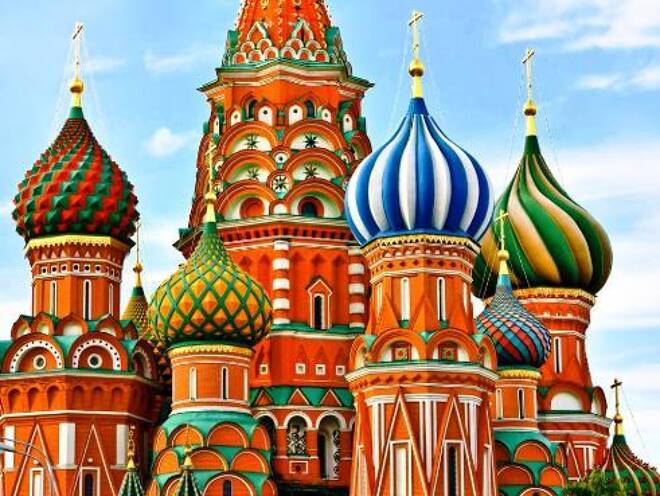Advertisement
Advertisement
Russia: US Sanctions On Sovereign Debt Signal Rising Risk Surrounding Geopolitical Tensions
By:
Russia’s accumulated buffers and higher self-sufficiency will mitigate the negative implications of new US sanctions this week on new state debt issuance, but prolonged and deepened sanctions and geopolitical risk affect Russia’s growth prospects longer term.
Under a new Executive Order of 15 April, the US Treasury banned US financial institutions from purchasing newly-issued rouble and non-rouble denominated sovereign bonds on the primary market, in addition to other measures such as targeted sanctions of Russian companies in the technology sector.
These new sanctions in a context of increasing geopolitical tension in the Donbas region of neighbouring Ukraine suggest a more determined approach toward Russia under the Biden administration. As such, the risk of further sanctions remains high.
The US government seems to have pulled some of its punches
However, the decision not to immediately sanction secondary trading of Russian government bonds – matching the approach taken in 2019 regarding sanctions on Russian foreign-currency sovereign debt – limits the ultimate impact of the latest measures on Moscow’s room for financial manoeuvre. State-owned Russian banks should substitute for lost US and non-US foreign demand on the primary market and sell on to banks including US ones on the secondary market.
For now, the US seems to have pulled some of its punches: the sanctions are not as severe as they might have been and Washington has dropped plans to send warships to the Black Sea ahead of a possible summit between President Joe Biden and Russian President Vladimir Putin.
The significance of sanctions hinges on how Russia responds
The significance of sanctions for Russia’s BBB/Stable credit ratings from Scope hinges at this stage in part on how Russia responds, in terms of retaliatory measures as well as any escalation or de-escalation in tensions with Ukraine. Fresh US sanctions are still negative for foreign investment flows and the value of the rouble, and are likely to reduce foreign demand for rouble-denominated assets.
The Russian economy’s resilience against external shocks has been strengthened
However, Russia’s economic reorientation over past years partly in response to earlier sanctions has strengthened the economy’s resilience against external shocks.
This enhanced resilience of Russia’s economy includes foreign investors’ diminished share of rouble-denominated treasury bonds – down at around 20% currently, from 35% in March 2020 – as financing needs are met increasingly via domestic sourcing.
The domestic banking system is well capitalised. Public debt is low, at less than 20% of GDP and mostly denominated in rouble. The government’s Eurobond issuance activity has, in addition, increasingly been reoriented to euros rather than dollars. Official reserves are high, standing at USD 580.5bn at the start of April, equivalent to nearly five times maturing external debt within one year. Finally, a more self-sufficient Russian economy contracted by only 3% last year, comparatively mild relative to the recessions of many economies in the rest of Europe. We expect growth of 3-3.5% in 2021.
However, Russia’s economic outlook still remains subdued without substantive structural reforms, while the full impact of sanctions will emerge only over time, as US and European sanctions have driven a deterioration in an already weak business and investment climate by discouraging investment, of domestic and foreign origin alike.
For a look at all of today’s economic events, check out our economic calendar.
Levon Kameryan is Analyst in Sovereign and Public Sector ratings at Scope Ratings GmbH. Jakob Suwalski, Director at Scope Ratings, contributed to writing this commentary.
For a look at all of today’s economic events, check out our economic calendar.
About the Author
Levon Kameryancontributor
Levon graduated with a M.Sc. in International Economics and Public Policy from the University of Mainz in 2016. Levon worked previously as an economist at the Central Bank of Armenia.
Advertisement
